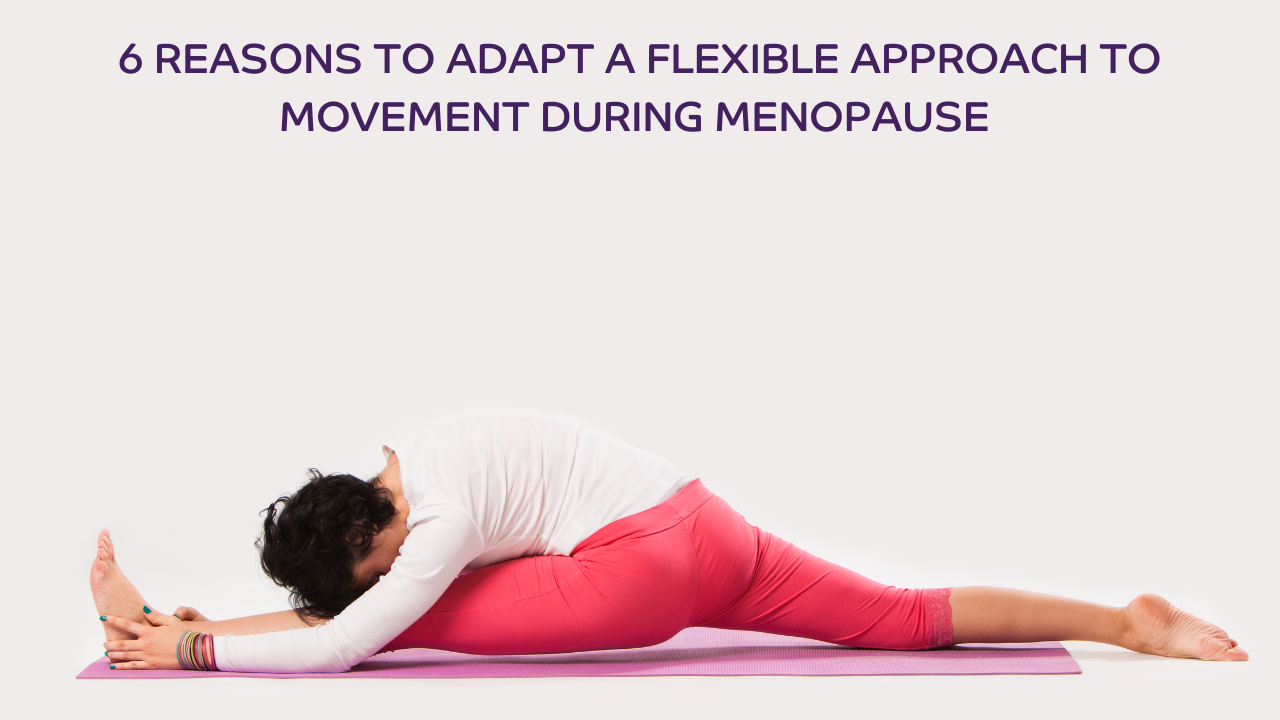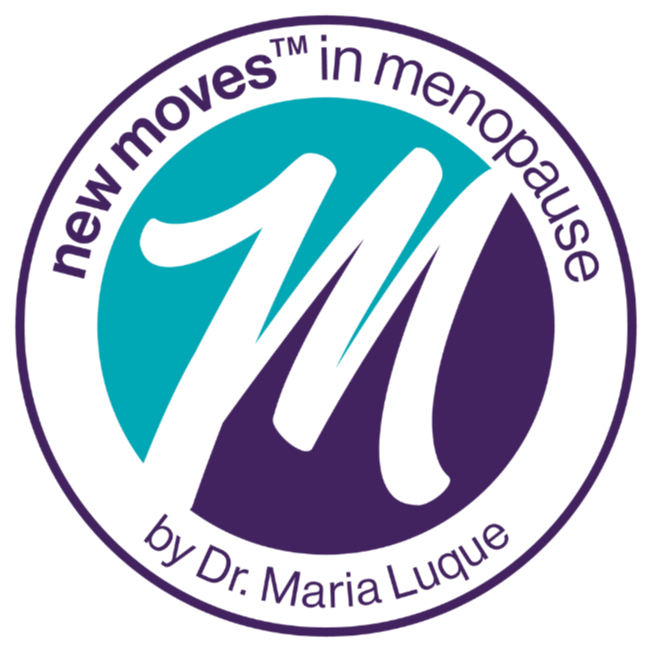6 Reasons To Adapt A Flexible Approach Movement in Menopause
Sep 06, 2023
It all started as a regular day for me, with big plans to hit the gym and lift some heavy weights—a workout I genuinely love. I was ready to "crush it" and looked forward to the energy and satisfaction I always get from a good weightlifting session. However, life had other plans.
I received some bad news that day, the kind of news that triggers every panic button in your brain and body and derails your entire day. Suddenly, my motivation to conquer the weights dissipated, and all I wanted to do was curl up and give in to the emotional storm brewing inside me. Can you relate? We all have those moments when life throws us a curveball, especially during menopause, when curveballs seem the norm. It was a crossroads moment, a choice between surrendering to despair or practicing self-compassion.
Prioritizing Self-Compassion
That day, instead of berating myself for not having the willpower to stick to my original workout plan, I chose self-compassion. I recognized that I needed to move, not just for my physical well-being but for my emotional health as well.
I knew that movement could shift my perspective, release endorphins, and help me regain my sense of self. So, I decided to pivot and adapt my fitness routine to my current emotional state. While I had initially planned to lift weights, I understood that the key was to move in a way that felt right for me at that moment. So, I opted for a gentler approach—I got on the treadmill with my ebook and began to walk. It wasn't the high-energy workout I had planned, but precisely what I needed.
For 45 minutes, I allowed my mind to escape into the world of the book while my body moved and released the tension that had been building up. I regained some inner peace and it was a profound reminder that exercise is not just about pushing your limits; it's about listening to your body and responding with kindness.
The Flexible Approach to Movement
Why am I sharing this personal experience? The reason is simple: I believe a flexible movement approach can be a powerful tool in your menopause toolbox. In fact, it can be a guiding principle for life in general. Embracing flexibility doesn't mean giving up on your fitness goals; it means adapting and adjusting your approach as needed.
Why It Works
- Menopause is Unpredictable: Just when you think you've got it all figured out, menopause throws a curveball. Your energy levels may vary daily, and your body may respond differently to exercise than it did before you boarded this roller coaster. Instead of pushing through pain or discomfort, it's essential to tune in and listen to what your body is telling you. That's where flexibility shines. It allows you to adjust your habits according to your body's cues. If you had plans for an intense workout but wake up feeling fatigued or sore, it's perfectly fine to opt for a gentler form of movement that day. The key is to maintain a consistent commitment to staying active while respecting your body's needs.
- Sustainable Progress: Rigid habits can lead to burnout and frustration. Imagine sticking to the same workout routine, diet, or self-care regimen regardless of how your body feels. That's a recipe for disaster. Flexible habits, on the other hand, ebb and flow with your needs. This sustainability ensures you keep making progress without hitting a wall. Rigid habits also can lead to a sense of failure when you don’t complete what you had planned. In her Tedx Talk, Dr. Milkman mentions that when people make concrete plans, such as setting a specific time and sequence to work out (i.e., every day at 5 am), they are more likely to follow that routine BUT they are less likely to complete their workout if they miss their pre-determined time. On the other hand, people that learn to be more flexible can be more successful at long-lasting habits because learning to adapt to sudden changes can make it easier to complete the goal regardless of time or day. For example, if you plan to work out at 5 am, but your dog kept you up all night, you can prioritize sleep and not get up but then still get your workout in later in the day. According to her, the more flexible people are, the more successful they are in creating life-long habits.
- Stress Reduction: Menopause and stress often go hand in hand. Flexible thinking and habits help you manage that stress more effectively. When you allow yourself to adapt, you reduce the pressure to meet unrealistic expectations. This, in turn, keeps stress levels in check, which is crucial for overall well-being.
- Embracing Variety: Variety is the spice of life, and menopause is no exception. By embracing flexibility, you welcome variety into your daily routine. This makes your journey through menopause not only more enjoyable but also more effective. Trying new things, exploring different exercises, and experimenting with various self-care practices become part of your menopausal adventure. I love variety so much that I wrote an entire blog about this. You can read it here.
- Emotional Resilience: Menopause isn't just about physical changes; it's an emotional rollercoaster too. Flexible thinking helps you build emotional resilience. You become more adaptable to mood swings and emotional ups and downs. It's like having an emotional safety net that catches you when you feel low.
- Enjoying the Journey: Menopause is a unique phase of life. I call it a voyage of self-discovery and self-exploration because it’s all about chances for new experiences. Flexible thinking allows you to say yes to that spontaneous dance class without feeling guilty about breaking a rigid routine.
Fellow Menopausers,
Think of a flexible approach to movement as your trusty companion on this dizzying but sometimes exhilarating menopausal adventure. It’s your roadmap for navigating the twists and turns of this unpredictable roller coaster. By embracing flexibility, you not only ease the transition but also find joy and strength in every moment.
I'd love to hear about your experience. Email me at [email protected]



